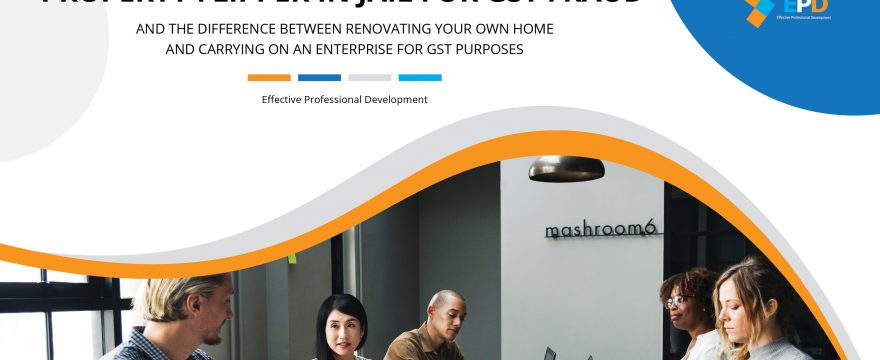Between 2005 and 2011, Ms Simone Semmens, a former TV presenter, purchased, developed and sold ten luxury properties in Toorak, Portsea and Caulfield North. Ms Semmens carried out extensive work on the properties, developing and subdividing them before selling them for a profit. She sold these properties for more than $20 million and made a total profit of more than $4.4 million.
She claimed the properties were for personal use, but the Australian Taxation Office (ATO) believed she was carrying on an enterprise that should have been registered for Goods and Services Tax (GST), lodging Business Activity Statements (BAS) and reporting the property sales. She was sentenced to two years and ten months in jail for GST fraud of $1.7 million.
The central issue of the trial was whether Ms Semmens was running an enterprise and therefore whether the sale of the properties was taxable supplies within the meaning of the GST Act. The term ‘enterprise’ is used in relation to ABN and GST. The basic definition covering commercial activities but excluding hobbies or employment.
If you are renovating properties, you need to determine whether you are:
- A personal property investor
- Engaged in a profit-making activity of property renovations; or
- Carrying on a business of renovating properties
If you’re considered a personal property investor, your net gain or loss from the renovation (proceeds from the sale of the property less the purchase and other costs associated with buying, renovating and selling it) is treated as a capital gain or capital loss respectively.
Learn more about this case from Effective PD’s webinar about Flipping Properties. The webinar also covers the difference between renovating your own home and carrying on an enterprise for GST purposes. Subscribe to Effective PD at www.effectivepd.com.au. Effective PD offers an innovative way for busy accountants to be on top of their game with continuing professional development in a brief, flexible and easy way.

